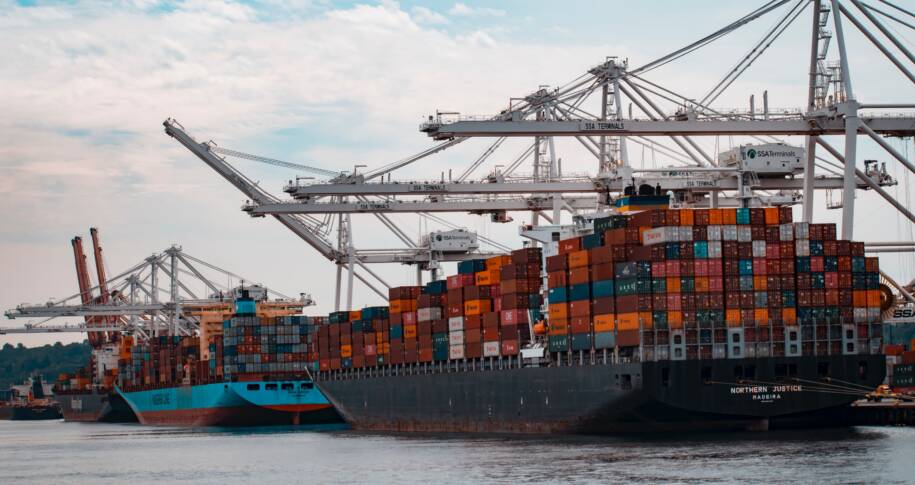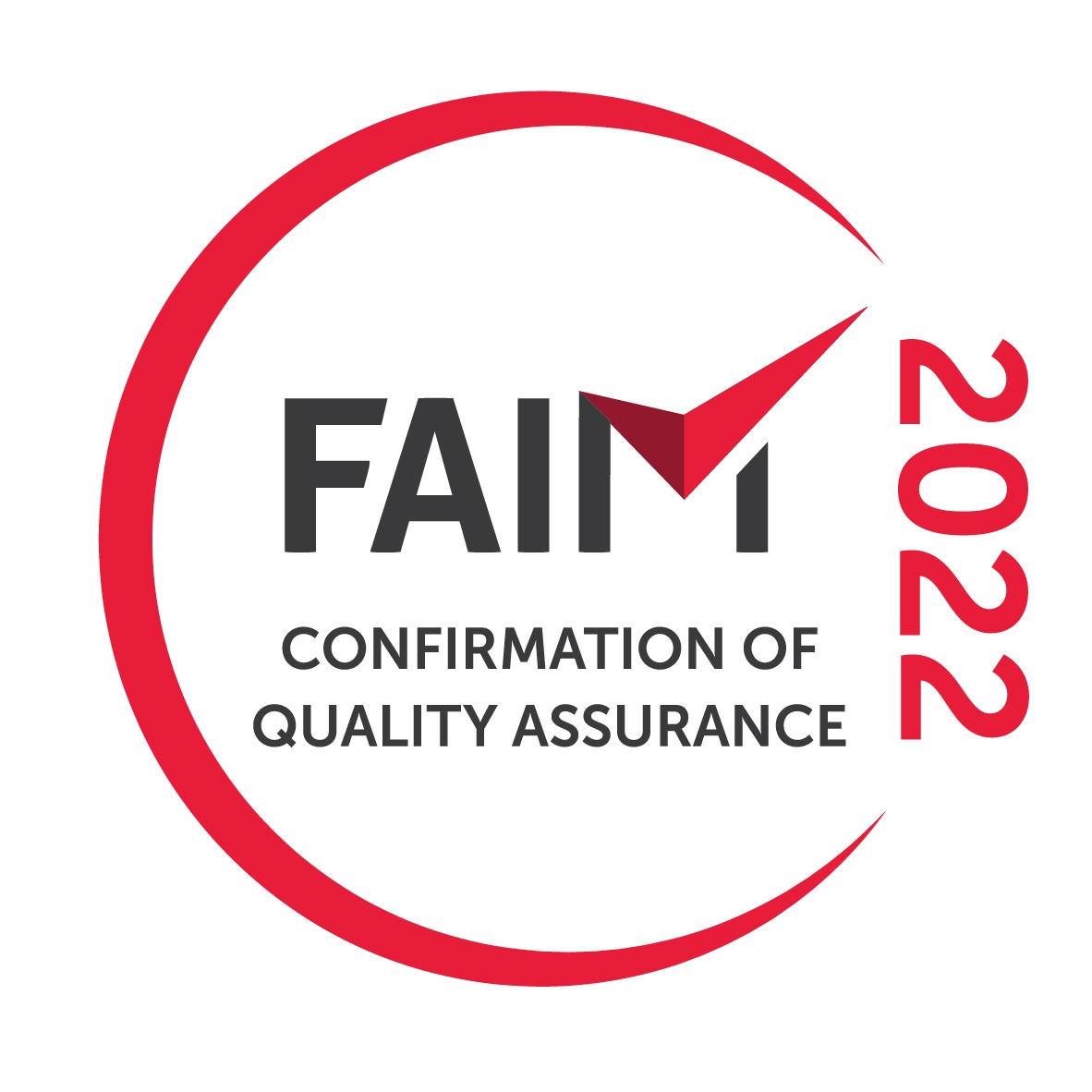With the continuous challenges in global container shipping and the impact this has on moving companies and their customers, BAR Overseas has prepared the attached update to help you explain the causes and impact of freight rate revisions and operational pitfalls. This update is intended to provide you with unbiased information on the state of shipping, and its many challenges
FREIGHT CONTRACT NEGOTIATIONS:
Most UK international movers are offered new sea-container freight contracts with revised freight rates
by the main sea-container shipping lines, which run from 1st of March to the 28th of February. To achieve the most competitive ocean-freight rates available from the major shipping lines of the world, an intensive and often protracted two-way negotiation is required, often up to the eleventh hour. This sometimes causes a short delay by the shipping line in publishing the new freight rates in time for the new contract start date. This can trigger a knock-on effect for the Mover (and customer) because Shipping Line(s) typically won’t confirm a new container-booking and nominated ship until the new freight rates are published.
Overseas move quotations issued by your BAR Mover, where they include the previous year’s freight rate cost, for a ship sailing in the new freight contract year, may also result in an amended move quotation reflecting any change in the freight rate cost.
CHINESE NEW YEAR
This year, Chinese New Year falls on the 22nd of January. Chinese Public Holiday and New Year celebrations last for some 15 days causing closure of many ports in China over this period. This impacts departure and arrival dates of shipments causing delays both to and from China and most of Asia. Customers moving to or from this region during the Chinese New Year period should please note that both BAR Movers and the Shipping Lines (vessel operators) have no control over such transit delays or changes to ships’ itinerary.
MARKET AVAILABILITY
Many destination ports around the world are experiencing varying lack of container or ship availability, leading to associated delays.
Eastbound trades from Europe (shipments to Asia, Oceania, India, Middle East). Although these routes are generally working well, port congestion continues to be a problem at certain transhipment ports, causing overall port to port transit delays. Additionally, some routine destination ports of call are currently being omitted completely by the Shipping Lines; at best the Lines are offering extremely limited service to previously regular ports; their rationale is that this will gradually improve the Shipping Line’s overall reliability across the whole range of destination ports which they serve.
Westbound trades from Europe (USA, Canada, Caribbean, and Latin America): these routes remain busy, and we expect delays in securing container-space on ships which serve these regions. Ships ‘waiting time’ for unloading at most USA ports is still a problem with congestion and resulting delays. Destination ports in the Pacific Northwest, such as Seattle, Portland and Vancouver, are still not being served on a direct ‘all water basis’, the alternative routes to these ports is via East Coast USA ports, but expects delays because of intermittent congestion on the US rail network used to carry the containers from East to West Coast.
Southbound trades from Europe (South, East, and West Africa): Where a shipping Line does offer a service on a given route to this area, it is usually quite reliable. However, many hinterland destinations (usually served via main ports with overland on-carriage to inland freight terminals) have been removed from the Shipping Line schedules because of lengthy main port congestion and or poor on-carrying transport infrastructure. This has caused a reduction of the main destination ports of call coverage across much of this region, especially the Indian Ocean Islands.
UK HAULAGE
The shortage of UK HGV drivers continues to be a serious problem across the country, impacting all industries including shipping. High demand combined with short supply is driving up container haulage costs included in the mover’s quotation. Shipping Lines who control the container haulage to and from the loading point and the port have recently introduced a Driver Retention Surcharge (DRS) aimed at maintaining their pool of HGV drivers, who would otherwise leave. This driver shortage, despite the DRS is causing some sea-container bookings to be cancelled at short notice. This is a very common operational challenge for Movers and their customers, impossible to predict when booking the container, and frankly, very little that can be done to protect Customers from such inconvenience.
CURRENCY EXCHANGE DIFFERENCES
Shipping Line’s container-freight rates and ancillary charges are usually quoted by them in foreign currency, mainly US Dollars and Euros for sea-freight, and local destination currency for destination port and on-carriage charges. These ‘freight charges’ are, however, payable in British Pounds (GBP) and converted typically at time of the ships’ sailing date, applying the currency exchange rate at that point in time. BAR Movers generally will include these container-freight costs in their GBP quotation offered to the customer using the indicative exchange rate(s) valid at the time of their quotation. Customers should therefore expect an adjustment of the Mover’s final invoice versus quotation, reflecting the actual exchange rate applied by the Shipping Line at time of despatch. Your BAR Mover has no control over the actual exchange rate used and applied by the Shipping Line.
FUEL COST CHANGES
Sea Container freight contracts are subject to periodical ships fuel (bunkering) cost reviews. This is a mechanism applied by Shipping Lines which compares the average price of bunkering quarter-on-quarter and then adjusts the rate either up or down based on the change. With the well-publicised energy supply issues, bunkering increases adding to the overall sea-container freight cost are highly probable. We have seen increases as much as US Dollars 350 per container in recent examples.
PORT STRIKES
Our UK Ports have experienced labour and Border Force strikes over the past 6 months; while no actions are currently scheduled that we are aware of, ongoing negotiation, particularly with UK Border Force workers continues. Customers should be aware of the impact of potential future strike actions which could cause unexpected delays both outbound (export) and inbound (import) shipments, particularly the inbound UK customs clearance time and subsequent container deliveries.
Lithium-Ion BATTERIES
The acceptance of ‘Li-ION’ batteries in household and personal effects shipments is a complicated subject. There is a widely reported increased fire risk associated with these batteries. Shipping Lines themselves are so far, inconsistent in standardising their rules for their inclusion or exclusion from a consignment. Typically we experience that Shipping Lines will decide on a shipment by shipment basis whether Li-ION batteries can be included. This extends to all and any items which may require such power units, examples include but not limited to cordless power tools, laptops, e-scooters, e-bikes and similar.
BAR recommends that Li-ION batteries are NOT shipped. If you do include them, the cargo will be declared (legal requirement) as ‘Hazardous Cargo’. If accepted by the Shipping Line, hazardous cargo will incur a substantial freight surcharge, driving up your cost of shipping. The rules for hazardous cargo declarations is fastidious; it will also impact the time is takes to secure a confirmed container space booking on a ship.
Non-declaration of Li-ION batteries (or other hazardous goods), whether by intent or in error, is treated by the Shipping Line as a misdeclaration. This is a serious offence under maritime law and would lead to a substantial fine (payable by the customer) (currently circa 30,000 US Dollars); in addition, the Shipping Line could confiscate and dispose of the consignment.
IN CLOSING
As your trusted international removals company, we assure all customers that your BAR Overseas mover is highly experienced and will always use their best endeavours for an efficient and trouble-free overseas move. This update is intended to provide you with unbiased information on the state of shipping, and its many challenges.
Click below to download the British Association of Removers (BAR): State of Global Shipping Market– January 2023 update










